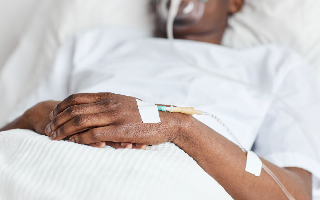
- No win. No fee.
- No hidden costs
- 100% risk-free, only pay if you win
- Home >
- Insights >
- Medical Negligence >
- Clinical negligence and medical negligence – is there a difference?
About the Author
Gillian Gadsby
Medical Negligence Solicitor, Co-founder and Managing Partner - LLB (Hons) University of East Anglia, 1989
Read more about Gillian »When you search online for information relating to medical negligence, you will often see it alongside the phrase “also known as clinical negligence”.
Both terms are employed interchangeably by solicitors, law firms, legal publications and others to mean essentially the same thing: when harm or injury is caused to someone following substandard treatment from a medical or aligned professional.
However, we recognise this dual phrasing could be a source of some confusion. If someone has been affected by negligent treatment, should they contact a solicitor proclaiming to be a medical negligence solicitor or a clinical negligence solicitor?
Does one type specialise in a particular area of medical law? Or in cases involving particular kinds of healthcare professionals? Is one group considered more “expert” in this complex field of law?
Here, we hope to clear any confusion arising out of the use of the two terms.
Fundamentally, the difference between clinical negligence and medical negligence lies in the origin of the former in the legal landscape.
Due to the connotations of the word “medical”, the term medical negligence was thought to give the impression that a claim could only be made against a doctor or comparable professional – or that the negligent act(s) would need to have occurred in a hospital or doctor’s surgery.
In fact, the range of healthcare professionals that can be liable for negligence extends far further than this. As well as doctors, GPs and equivalent roles, claims can also be made against (among others):
- Nurses
- Midwives
- Dentists
- Physiotherapists
- Psychologists
- Psychiatrists
- Osteopaths
- Opticians
Therefore, the term “clinical negligence” was employed to illustrate that it applies to negligent acts or failures by all sorts of professionals across the healthcare spectrum, as long as it causes physical, psychological and/or financial harm to the claimant.
In a practical sense, there is no meaningful difference between medical negligence and clinical negligence. Some people, both inside and outside the legal industry, prefer one phrase to the other, or use both to cover all bases for people searching for these services online.
At Gadsby Wicks, we recognise that the term “medical negligence” is better understood and is a less technical, sterilised phrasing for this area of law. We always endeavour to talk to our clients about their cases in the clearest and most straightforward way possible.
When searching for medical negligence or clinical negligence, you might also come across firms using the phrase “hospital negligence”.
Hospital negligence is simply a specific area of medical or clinical negligence. As the name suggests, it refers to negligence that occurs within a hospital environment.
At Gadsby Wicks, our solicitors work solely in the area of medical negligence since our formation in 1993. We are the true specialists in this field:
- We were the first firm in England to have more than two lawyers accredited as clinical negligence specialists by the Association of Personal Injury Lawyers
- Four of our solicitors are accredited by The Law Society’s Clinical Negligence Accreditation Scheme
- Our Managing Partner Gillian Gadsby is on the Clinical Negligence Specialist Panel for Action Against Medical Accidents (AvMA)
With decades of combined expertise, our specialist knowledge and unmatched work ethic, we help our clients find the answers they are seeking for what happened to them, and pursue the justice and compensation they deserve for the pain and suffering they were caused.
Whether you prefer to refer to it as medical negligence or clinical negligence, make sure your claim is handled by a team you can trust. Speak to us today about your situation and discover what we can do for you.
Disclaimer
All content contained within this article is meant for general information only – this should not be treated as a substitute for medical advice from your doctor or another healthcare provider. If you require legal advice specific to your situation, please contact our team directly.
Gadsby Wicks is not liable for any diagnosis made from the content of this article, nor does it endorse any service or external site linked to within the article.
Always consult your GP if you are concerned about your health and wellbeing, or speak to us if you require legal advice.


The value of specialist medical negligence solicitors


